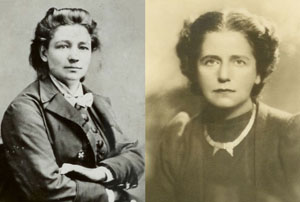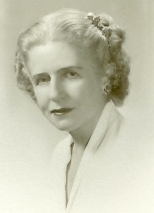
Victoria Woodhull (1838-1927); Emanie Philips (1893-1981)
After establishing herself in New York during the 1920s as an author of novels, short stories and reviews, Bowling Green native Emanie (Nahm) Sachs longed to write the biography of a “wild woman.” In 1927, fate handed Emanie her subject with the death of the notorious nineteenth-century feminist, free love advocate, spiritualist, suffragist and presidential candidate Victoria Woodhull. The result was The Terrible Siren, published in 1928. A feast of gossip and hearsay that made its publisher’s attorneys nervous about libel suits, the book nevertheless remained the standard work on Woodhull for decades.
The Emanie (Nahm) Sachs Arling Philips Collection at WKU’s Special Collections Library preserves much of her fascinating research into Woodhull’s life. Emanie and her assistants combed through libraries and newspaper archives and contacted individuals who had personally known Woodhull and her colorful family. While some informants had scandalous stories to tell, others defended Woodhull as a clever and charming woman who was far ahead of her time.
After her success with Woodhull’s biography, Emanie went to work on a history of Kentucky. She became particularly fascinated with the state’s early years, gathering primary and secondary resources on pioneers, Indians and politicians. Although the work was never published, her manuscript and much of her research is also part of the collection.
A finding aid for the Emanie (Nahm) Sachs Arling Philips Collection can be downloaded here.

